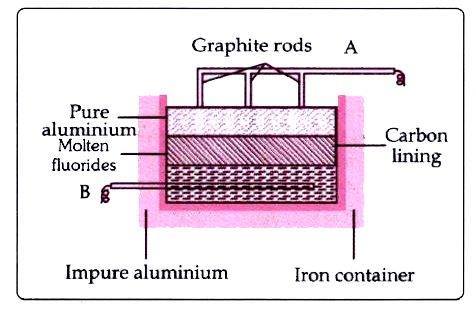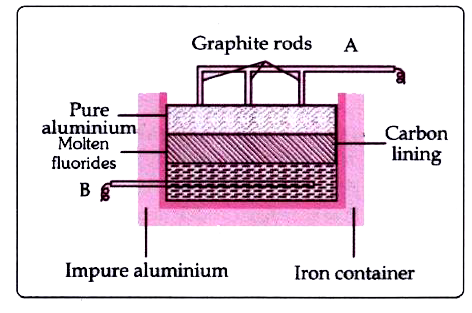The sketch below illustrates the refining of aluminium by Hoope's process.
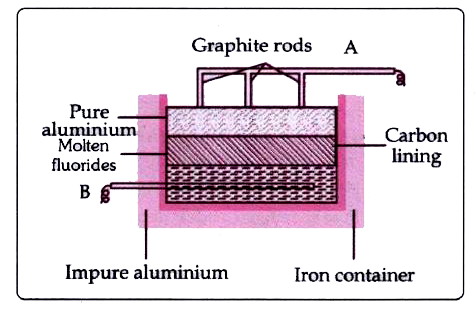
Which of A and B is the cathode and which one is the anode?
Step by step video & image solution for The sketch below illustrates the refining of aluminium by Hoope's process. Which of A and B is the cathode and which one is the anode? by Chemistry experts to help you in doubts & scoring excellent marks in Class 10 exams.
Updated on:21/07/2023Topper's Solved these Questions
- METALLURGYBook:ICSEChapter:METALLURGYExercise:QUESTIONS
Explore 127 Videos
- METALLURGYBook:ICSEChapter:METALLURGYExercise:QUESTIONS FOR PRACTICE
Explore 53 Videos
- METALLURGYBook:ICSEChapter:METALLURGYExercise:ADDITIONAL QUESTIONS FOR PRACTICE
Explore 39 Videos
- ELECTROLYSISBook:ICSEChapter:ELECTROLYSISExercise:Assertion and Reason Based Questions
Explore 4 Videos
- MODEL PAPER -1Book:ICSEChapter:MODEL PAPER -1Exercise:SECTION -II
Explore 48 Videos
Similar Questions
Knowledge Check
Which one is the correct formula of aluminium sulphate?
AAlSO4BAl2(SO4)3CAl3(SO4)2DAl(SO4)3
Which one of the following is not an ore of aluminium ?
View SolutionWhich one of the following is not an ore of aluminium ?
View SolutionAnswer the following question related with the isolation of aluminium from bauxite:
Give the equation for the reaction which occurs at the anode when aluminium is purified by electrolysis.
View SolutionDuring Hoope's process for eelctrolytic refining of Al, the middle layer is of
View SolutionAnswer the following question related with the isolation of aluminium from bauxite:
Name the element which serves both as the anode and the cathode in the extraction of aluminium.
View SolutionThe following is a sketch of an electrolytic cell used in the extraction of aluminium.
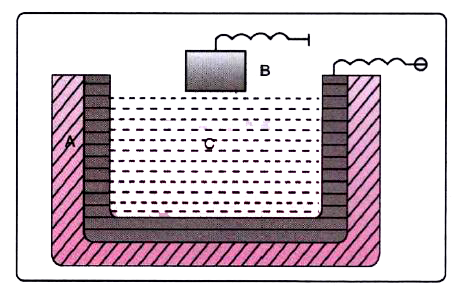
What is the substance of which the electrode A and B are made ?
View SolutionGiven below is a sketch of a plant for carrying out a process.
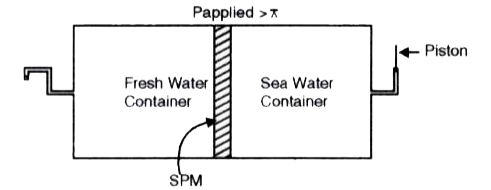
(i) Name the process occuring in the above plant.
(ii) To which container does the net flow of solvent takes place?
(iii) Name one SPM which can be used in this plant.
(iv) Give one practical use of the plant.
View Solution
